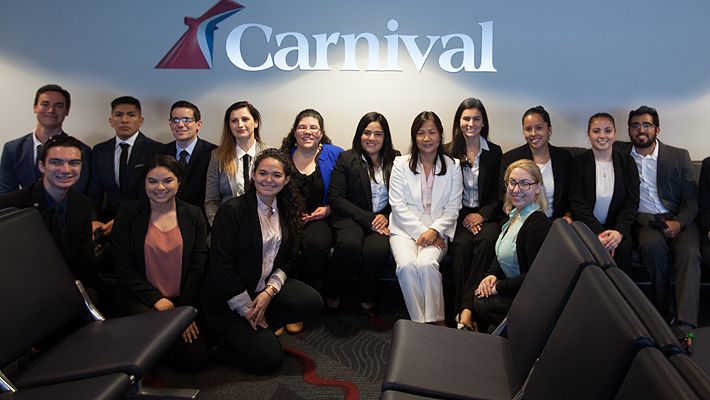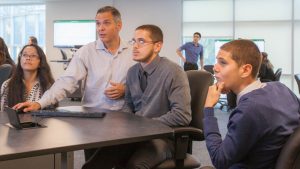On a recent sunny day, a group of 50 Florida International University College of Business students boarded the Carnival Victory in Miami and were invited up to the Lido Deck to fill their plates at the buffet.
But theirs was no ordinary cruise ship experience. Starting with brunch, all the way to disembarkation that same afternoon, FIU students on the May 18, 2018 visit got an up-close, behind-the-scenes look at the complex business of cruising. They learned about the training it takes to navigate a floating city through rough seas, and saw how the company works to make sure that its “Fun Ships” are fun for passengers and crew alike.
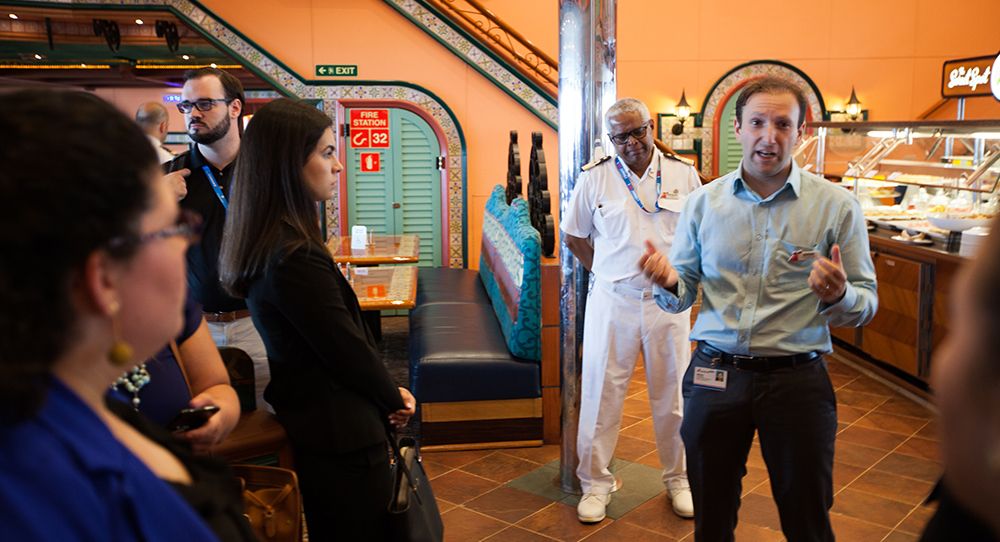
Throughout the ship, students learned how classroom lessons in analytics, accounting, marketing, operations, logistics, human resource management and more come into play in the cruise experience.
Visiting a place where “business can be anything.”
Much of the tour was navigated by Adrian Greystoke, Carnival Cruise Line’s vice president, operational shared services. Greystoke, a former Boston Consulting Group consultant, is responsible for the operational management of tens of thousands of team members from over 100 countries, serving 5 million guests a year.
“When you go to school, you learn business,” he said, “but what actually is business? In this place, it can be anything.”
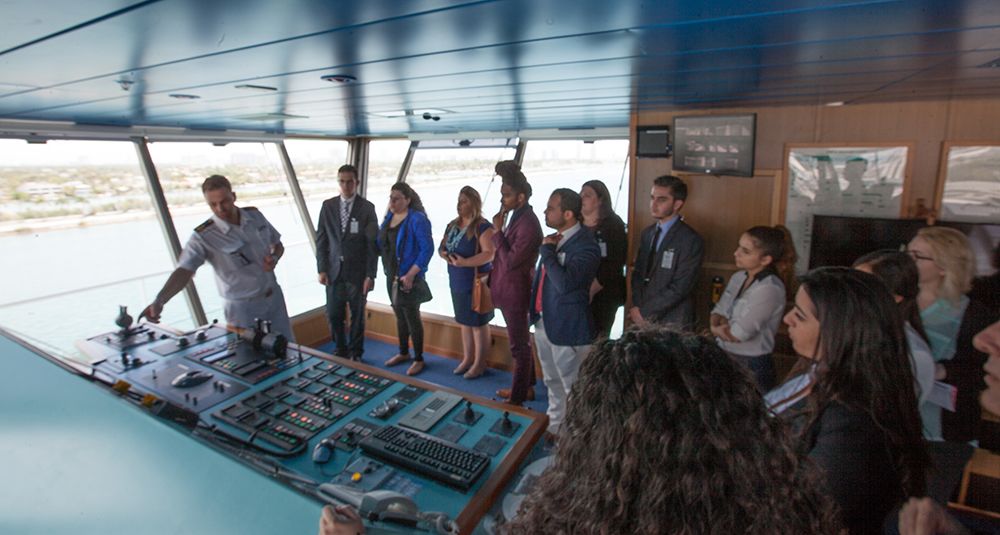
Students went to the galley, where they digested some big numbers: the ship prepares 20,000 meals a day, and the head chef oversees a staff that uses $340,000 worth of food each day. They heard about the logistics of ordering, intake and preparation.
From the engine room to the bridge to the galley, students repeatedly heard how communication was essential to the operation. The captain may be in charge on the bridge, but without the full cooperation of the engine room, that ship won’t sail. Backstage at the theater, students learned the importance of communication between people working lighting, scenery and performers, especially in a venue where rough seas could mean a dangerous situation and a change of plans.
Greystoke brought in behavioral economics, and how even the smallest pieces of detail can make a big impact in the all-important customer feedback. For example: elevators. Research told Carnival that passengers remember the beginning and the end of their cruise. That’s why Carnival pays attention to the ease of getting on and off elevators during the embarkation and disembarking processes.
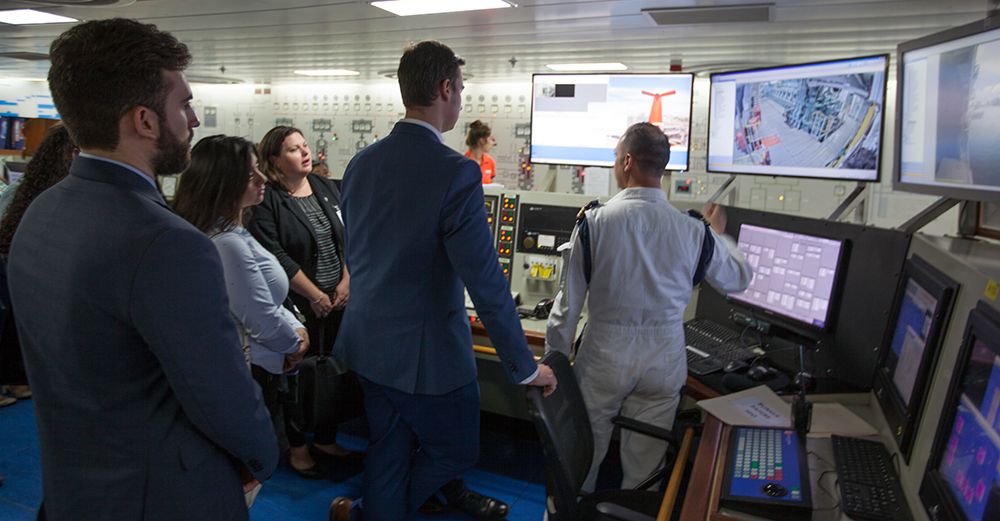
A place where metrics come alive.
For Sabrina Bocaranda, a senior who majors in international business, marketing and psychology, the visit was an opportunity to see her classroom subjects come alive.
“They talked a lot about metrics, measurements, and keeping track of customer satisfaction,” she said. “That’s something we definitely learn in the classroom. I was not only able to relate to my marketing classes, but also my psychology classes, where keeping track of all those metrics is very important.”
“Overall, it was a great experience,” Bocaranda said. “The staff was super helpful, and seeing how receptive they were to having students watch and learn was very meaningful.”
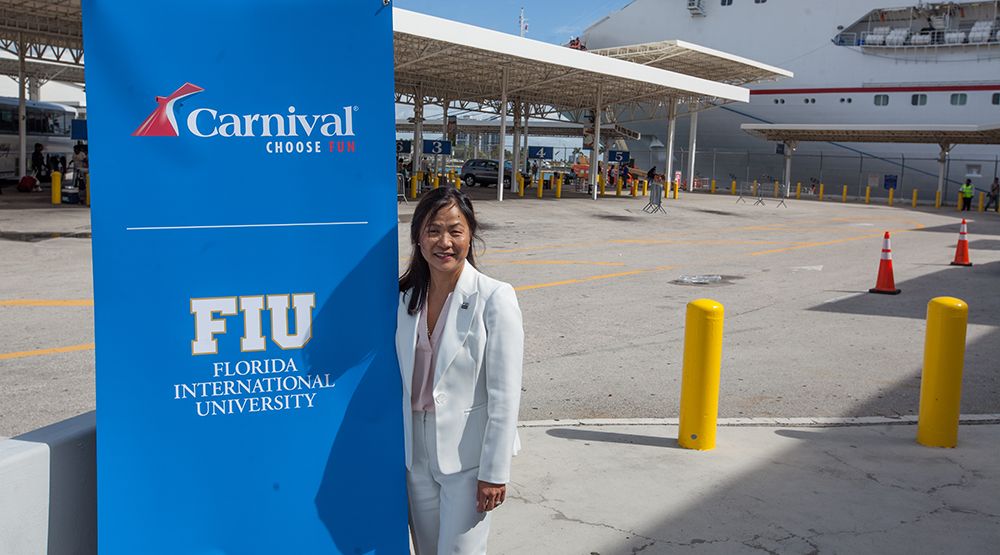
Megan Meeks, director of corporate relations for the College of Business, who helped arrange the tour, said, “Adrian did a fantastic job of showing students each piece of the industry–and how he applies business principles daily.”
Giving students access to these insights is a priority for Dean Joanne Li, who accompanied the students onboard. She hopes to offer other opportunities to “lift the curtain,” to give students a better sense of connection between the classroom and the workplace.
Said Carnival’s Greystoke: “I hope they enjoyed getting to know each other, and had a great experience getting to know the Carnival brand.”


